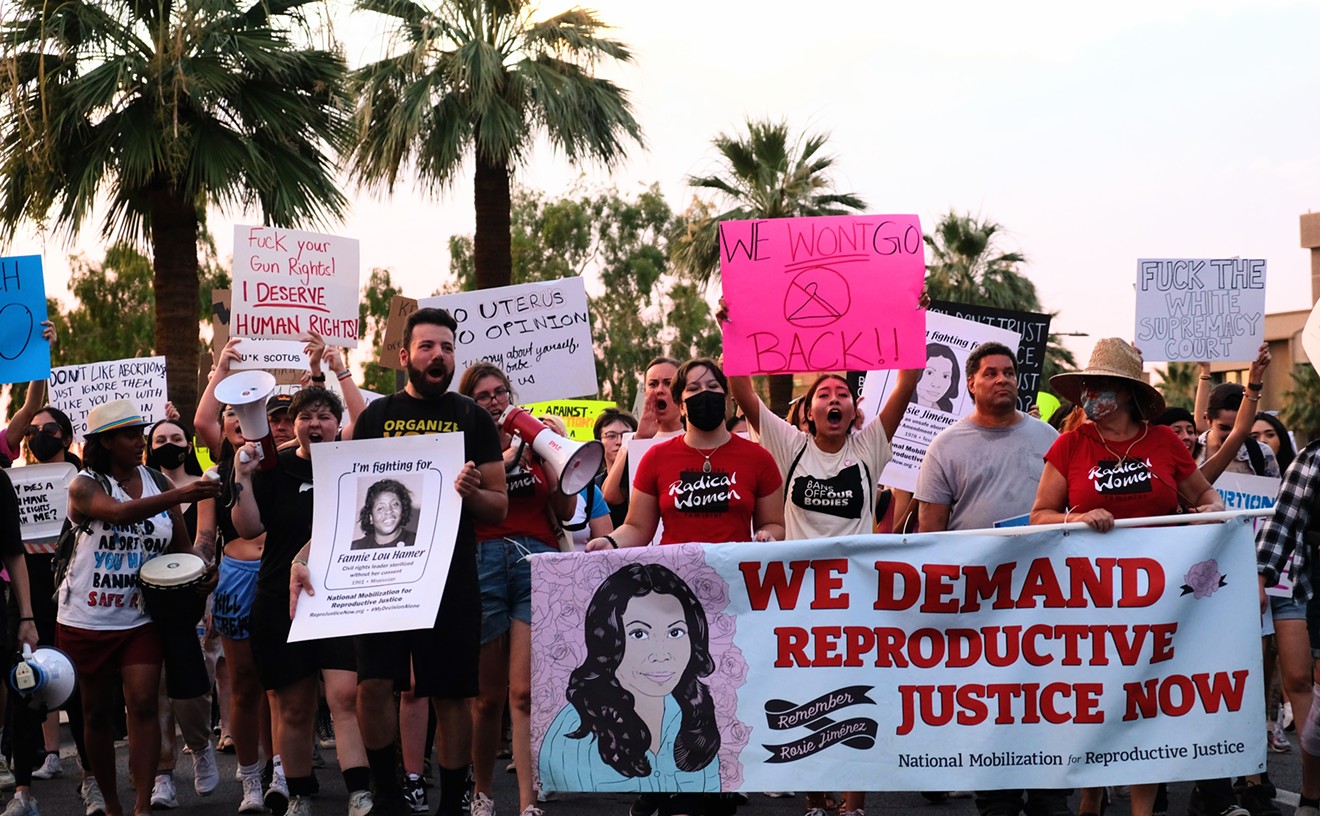A new bill landed on Arizona Governor Doug Ducey’s desk that, if signed, will bar state and local governments from doing business with companies or groups boycotting Israel.
House Bill 2617 is part of a national backlash against the “BDS movement” (BDS stands for boycott, divestment, and sanctions), which began in 2005 when “Palestinian civil society issued a call for a campaign of boycotts, divestment, and sanctions against Israel until it complies with international law and Palestinian rights.”
In the last decade, the BDS movement has gained traction across the world, but because of its controversial nature, has also inspired prominent pro-Israel groups to lead a counter movement.
If Ducey signs this bill, Arizona will become one of a handful of states to enact anti-BDS legislation. Similar legislation has been proposed in at least 20 other states, according to the Jewish Telegraphic Agency.
HB 2617 states that “a public entity may not enter into a contract with a company … unless the contract includes a written certification that the company is not currently engaged in, and agrees for the duration of the contract to not engage in, a boycott of Israel.”
It also mandates: “On or before April 1 of each year, each public fund shall prepare a list of restricted companies and shall publish that list on its website,” and must “sell, redeem, divest, or withdraw all direct holdings of a restricted company … within three months.”
State Representative David Gowan sponsored the legislation, explaining in the language of the bill that:
“Boycotts and related tactics have become a tool of economic warfare that threaten the sovereignty and security of key allies and trade partners of the United States. The state of Israel is the most prominent target of such boycott activity [and] companies that refuse to deal with the United States’ trade partners such as Israel … make discriminatory decisions on the basis of national origin that impair those companies’ commercial soundness.”
Many who criticize the BDS movement say it’s nothing more than a blatantly anti-Semitic campaign intended to de-legitimize the state of Israel, while those who support it liken it to the successful divestment campaign that helped end apartheid in South Africa. The Arizona House of Representatives first passed the bill 46-14 on February 17, and the Senate passed it 23-6 on March 3. It went back to the House for a final vote this week because the Senate added a small amendment, and it passed yesterday 42-16.
A spokesman for Governor Ducey did not immediately respond to a request for comment about the bill, but it’s a relatively safe bet that he will sign it into law. Ducey traveled to Israel last year for a conference on water conservation and thanked the Israeli government for the invitation:
“A partnership between Israel and Arizona is something I’m excited about pursuing. I can’t wait to bring back to Arizona everything I’ve learned from being here: the people I’ve met, the stellar policy experts and brilliant leaders, and the valuable information I’ve learned from all of them. I’m confident this isn’t the last we’ll be hearing from each other.”
Some have questioned the constitutional legitimacy of HB 2617 and similar bills across the country, but the U.S. Supreme Court has upheld the right to boycott – or to boycott a boycott – as a freedom-of-speech matter.
A representative from the BDS National Committee could not immediately be reached for comment, but the pro-Israel, anti-BDS group StandWithUs, said in a statement:
"[HB 2617] does not raise any 1st Amendment concerns because it does not in any way regulate, penalize, or infringe on anyone’s private speech or conduct. Private parties who wish to boycott Israel can continue to do so freely [but] boycotts of entities and individuals of specific countries often amount to ethnic, religious, racial, and/or nationality discrimination, which directly contradicts the public policy of Arizona and the values of its people."
[
{
"name": "Air - MediumRectangle - Inline Content - Mobile Display Size",
"component": "18478561",
"insertPoint": "2",
"requiredCountToDisplay": "2"
},{
"name": "Editor Picks",
"component": "16759093",
"insertPoint": "4",
"requiredCountToDisplay": "1"
},{
"name": "Inline Links",
"component": "17980324",
"insertPoint": "8th",
"startingPoint": 8,
"requiredCountToDisplay": "7",
"maxInsertions": 25
},{
"name": "Air - MediumRectangle - Combo - Inline Content",
"component": "16759092",
"insertPoint": "8th",
"startingPoint": 8,
"requiredCountToDisplay": "7",
"maxInsertions": 25
},{
"name": "Inline Links",
"component": "17980324",
"insertPoint": "8th",
"startingPoint": 12,
"requiredCountToDisplay": "11",
"maxInsertions": 24
},{
"name": "Air - Leaderboard Tower - Combo - Inline Content",
"component": "16759094",
"insertPoint": "8th",
"startingPoint": 12,
"requiredCountToDisplay": "11",
"maxInsertions": 24
}
]










